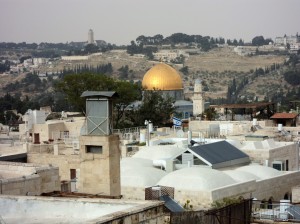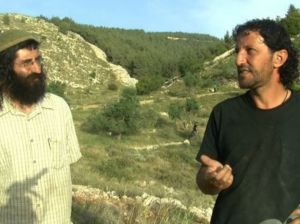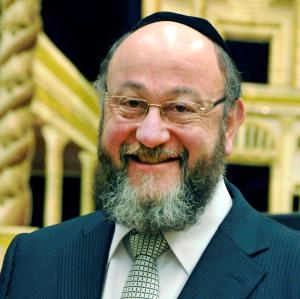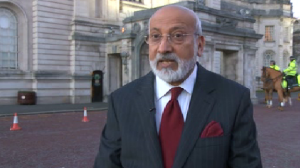Home » Jewish-Muslim interaction
Category Archives: Jewish-Muslim interaction
Sisterhood of Salaam Shalom
The Sisterhood of Salaam Shalom was founded 5 years ago by Jewish and Muslim women seeking peace together. Their membership has risen since the last presidential election as they perceive how Jewish and Muslim communities are vulnerable and at risk. This article is worth reading. I will be posting more about this group and similar ones in Europe. They say:
Another reason that the Sisterhood has been successful is that we attempt to go beyond the cursory “Abrahamic family” conversations that are so typical of interfaith efforts. Instead of convening a one-time panel discussion between a rabbi and an imam or just getting together to talk about our commonalities over a plate of shared hummus, the Sisterhood provides a space for women to be vulnerable and to learn about one another’s real challenges and concerns.
Sufism and Jewish-Muslim Relations
Many of you have expressed a wish to read my research. I’m very pleased to let you know that it has now been published by Routledge under the title, Sufism and Jewish-Muslim Relations: The Derekh Avraham Order in Israel. To order from Routledge click here or to order from Amazon click here. It has been a long journey to bring this project to fruition. However, it has been an enriching and spiritually rewarding journey in addition to pursuing the academic rigour this kind of work requires.
In Israel there are Jews and Muslims who practice Sufism together. The Sufi activities that they take part in together create pathways of engagement between two faith traditions in a geographical area beset by conflict. Sufism and Jewish Muslim Relations investigates this practice of Sufism among Jews and Muslims in Israel and examines their potential to contribute to peace in the area. It is an original approach to the study of reconciliation, situating the activities of groups that are not explicitly acting for peace within the wider context of grass-roots peace initiatives. The author conducted in-depth interviews with those practicing Sufism in Israel, and these are both collected in an appendix and used throughout the work to analyse the approaches of individuals to Sufism and the challenges they face. It finds that participants understand encounters between Muslim and Jewish mystics in the medieval Middle East as a common heritage to Jews and Muslims practising Sufism together today, and it explores how those of different faiths see no dissonance in the adoption of Sufi practices to pursue a path of spiritual progression. The first examination of the Derekh Avraham Jewish-Sufi Order, this is a valuable resource for students and scholars of Sufi studies, as well as those interested in Jewish-Muslim relations.
Unexpected friendships between Palestinians and Jewish Settlers
 If you look to what is actually happening on the ground among the people of Israel and Palestine then you will find many initiatives that are forging better relations between Jews and Palestinians. These are too often ignored by mainstream media but the Israeli newspaper, Haaretz, reports that “unlikely friendships are blossoming” in its article on a documentary film, “A Third Way – Settlers and Palestinians as Neighbors” directed by Harvey Stein which follows the life of the great peacemaker Rabbi Menachem Froman whose work initiated so many of these meetings. As Haaretz reports, “Somewhere on a little piece of farmland in the West Bank, wedged between a cluster of Jewish settlements in the Gush Etzion bloc, there is a small wooden shack where unlikely friendships are blossoming. Here, Palestinians and settlers are defying the expectations and meeting as equals, with hopes for a better future.” To read the full article click here.
If you look to what is actually happening on the ground among the people of Israel and Palestine then you will find many initiatives that are forging better relations between Jews and Palestinians. These are too often ignored by mainstream media but the Israeli newspaper, Haaretz, reports that “unlikely friendships are blossoming” in its article on a documentary film, “A Third Way – Settlers and Palestinians as Neighbors” directed by Harvey Stein which follows the life of the great peacemaker Rabbi Menachem Froman whose work initiated so many of these meetings. As Haaretz reports, “Somewhere on a little piece of farmland in the West Bank, wedged between a cluster of Jewish settlements in the Gush Etzion bloc, there is a small wooden shack where unlikely friendships are blossoming. Here, Palestinians and settlers are defying the expectations and meeting as equals, with hopes for a better future.” To read the full article click here.
Chief Rabbi is guest of honour at a Muslim dinner in Wales
 I found this report in the Jewish Chronicle Online Chief Rabbi Ephraim Mirvis was invited to address the Muslim community in Cardiff. Saleem Kidwai, the secretary-general of the community commented on something that I believe is so important for the two faith communities. He said, “The increase of antisemitism and Islamophobia is increasing day by day and the need for unity and working together has never been so important as at this time.” There is quite a bit of evidence that Jewish and Muslim communities are working together in mutual support in places like London and Berlin and online forums. May it continue and grow.
I found this report in the Jewish Chronicle Online Chief Rabbi Ephraim Mirvis was invited to address the Muslim community in Cardiff. Saleem Kidwai, the secretary-general of the community commented on something that I believe is so important for the two faith communities. He said, “The increase of antisemitism and Islamophobia is increasing day by day and the need for unity and working together has never been so important as at this time.” There is quite a bit of evidence that Jewish and Muslim communities are working together in mutual support in places like London and Berlin and online forums. May it continue and grow.
Elana and Ibtisam: Women working for peace
Some time ago I posted a short video about Elana and Ibtisam who work together for peace in Israel and Palestine. They both spoke about the role of women in peace-building and how women’s voices need to be heard in the peace process. I posted the clip with the title Holding Hands: Daughters of Abraham as this is how they began their story of the work they do together. The clip is here
I’m now posting Part 2 and Part 3 in which they speak about how they met at an interfaith gathering and how they get to know each other and their families. Part 3 shows Ibtisam’s work in her village, creating a Women’s Council and working with the mayor to improve the conditions and education of women. The video was made a few years ago and I will try to get an update on how the recent events have impacted on the work of Elana and Ibtisam.
Part 2
Part 3
Haifa’s Answer
A film about Haifa where different groups successfully co-exist and celebrate their main religious holidays together. It is possible and there are some very interesting comments from the participants in this film. Well worth watching.
“Different communities living together in the same town in a country of conflicts, strive to find a form of coexistence that would respect the identity of each of them, allowing dialogue and peaceful coexistence. Haifa is a unique example of a form of coexistence that finds its utmost and highest symbolic expression in the Holiday of Holidays, a unique and extraordinary festival in which the most significant holidays of the three main religions of the local population — Judaism, Islam and Christianity — are celebrated at the same time.”
Expressing Condolences to the Bereaved
A moving call from Rabbi Ron Kronish. The grass-roots peacemakers of Israel and Palestine can make a difference!
Dr. Ron Kronish
first published on Times of Israel, July 7th 2014
At the end of April, I wrote a post on this blog, which was entitled “Stop the Hate Crimes Epidemic in Israel Now.” It was translated into Hebrew and also published on the Walla website.
At that time, I felt, along with many other people that the acts of extreme “religious” Jewish youth –which have been sanctioned for years by their rabbis and by many political “leaders” in Israeli society— had already reached epidemic proportions and were endangering the moral fabric of Israel society.
At that time I wrote:
“The hate crime epidemic in Israel must be brought under. This has got to stop. It is urgent and can no longer be swept under the carpet!”
And, what has been done since then to combat this phenomenon? Nothing! Just lip service, but hardly anyone has been arrested or…
View original post 590 more words
A new book by Rabbi Shai Har-El on “Where Islam and Judaism Join Together”
 An interesting new book on Jewish-Muslim relations by author, Shai Har-El. When asked how his book will help Jews and Muslims to appreciate their common bonds Har-El replies:
An interesting new book on Jewish-Muslim relations by author, Shai Har-El. When asked how his book will help Jews and Muslims to appreciate their common bonds Har-El replies:
I wrote my book in a spirit of harmony and brotherhood. I treated it as a place, where I attempt to bridge between Islam and Judaism, and as a tool to promote a greater understanding and appreciation of these two Abrahamic traditions. The book is a sincere effort to go back to our sacred texts and reinterpret their teachings so that an open space is created to embrace religious pluralism and respect of other people’s truths. I chose to concentrate only on Islam and Judaism, sister religions that I believe are closely related to one another with roots intertwined in the land, in the language, and in the memories of shared history. The book demonstrates how, of all religions, they are by far the closest to each other in their fundamental religious tenets, practices and systems of law, and their social, cultural and ethical traditions.
Eliyahu Maclean: Rodef Shalom
Just Vision is an organization based in Washington, US and Jerusalem. Their mission is to:
“Generate awareness and support for Palestinians and Israelis who pursue freedom, dignity, security and peace using nonviolent means”.
 This includes publishing interviews with peace-makers and making prize-winning documentary films on non-violent protest in Israel and Palestine. Their website is an excellent resource for information and I am finding it very useful as an aid in my research. The interview with Eliyahu, done in 2010, is very interesting in the examples he gives of how best to build bridges and his own journey to becoming a peace-maker. The article has extensive footnotes and speaks as much of the very real difficulties of this kind of work as it does of its successes. Here is a short taster and below is the link to read the full interview on the website.
This includes publishing interviews with peace-makers and making prize-winning documentary films on non-violent protest in Israel and Palestine. Their website is an excellent resource for information and I am finding it very useful as an aid in my research. The interview with Eliyahu, done in 2010, is very interesting in the examples he gives of how best to build bridges and his own journey to becoming a peace-maker. The article has extensive footnotes and speaks as much of the very real difficulties of this kind of work as it does of its successes. Here is a short taster and below is the link to read the full interview on the website.
I was asking, what is the spiritual underpinning, what does Judaism have to say? I started opening up to ideas about Hashem and truth and God. When the Gulf War was over, I went to Egypt. I studied Islam, and spent a lot of time in a mosque. I was searching for truth. I was invited to a traditional Sufi gathering, with Egyptian Muslim Sufis dressing in white robes, chanting and swaying. It was a very, very profound experience for me. I spent a long time there and I was really drawn to Islam, it was a beautiful path. But there was a voice in my head calling me back to Israel.
This time I ended up working as a goat herder in the Galilee for a religious Jewish mountain man. I spent a lot of time in meditation out in the fields of the lower Galilee, and felt like I could connect with the tradition. That’s when I started wrapping t’fillin and started growing my peyot, I always tuck them back. That was in 1994. I also spent a lot of time with Shlomo Carlebach, before he passed away. He was a big influence. I would watch how he interacted with people and helped them return to their roots, and how he respected anyone of any religion who came to him. He always said you have to have “holy chutzpah.”
Sulha Prayer at the Tomb of Abraham
There is something very special about this video as a group of Jewish and Muslim peace-makers go to pray together in Hebron at Abraham’s tomb, also known as the Machpelah.









